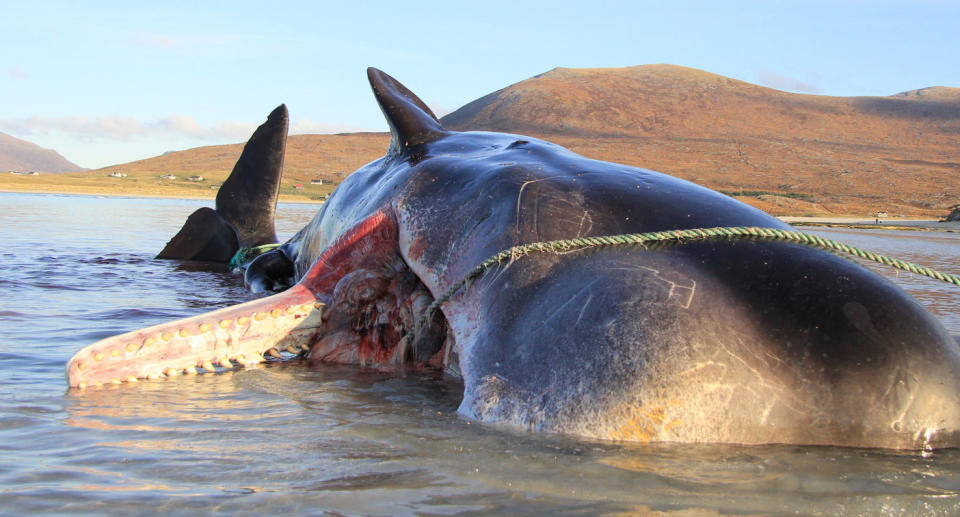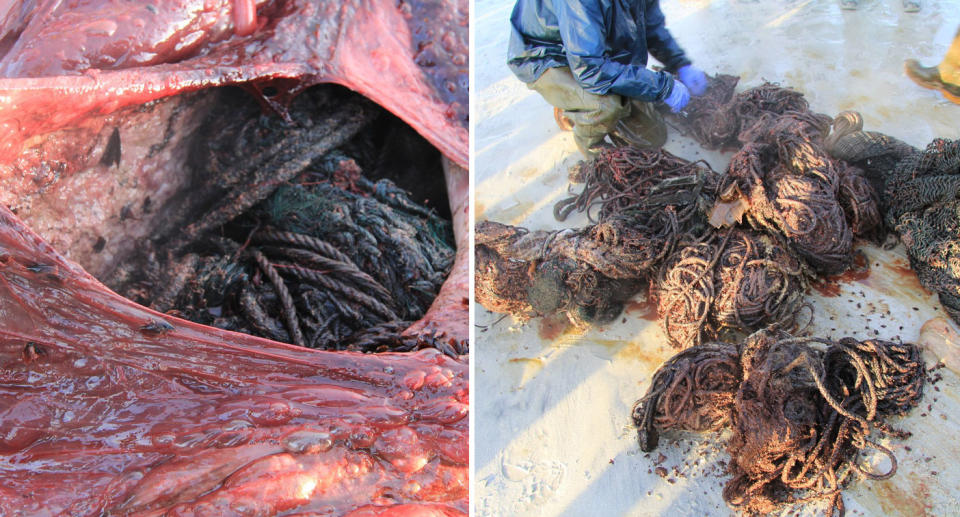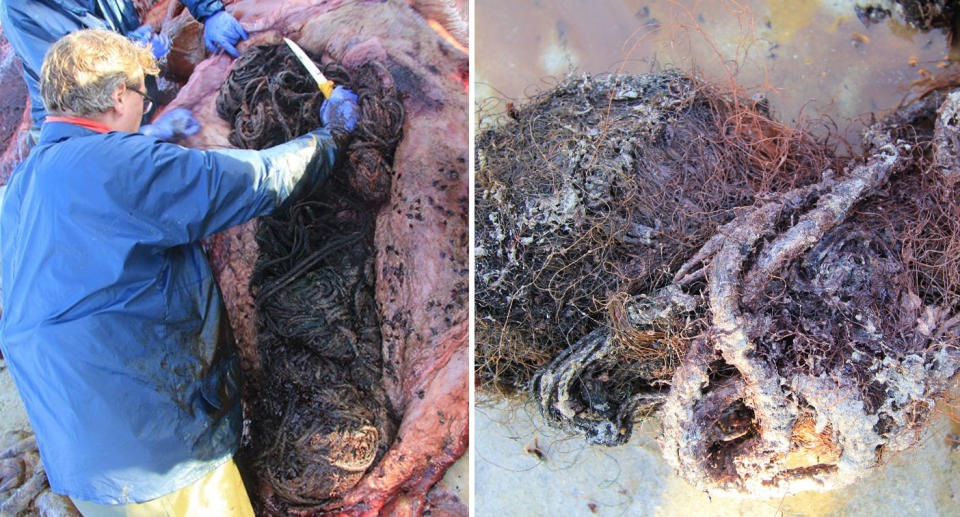'Horrific' 100kg find inside whale washed up on beach
A young male sperm whale that died after being stranded on the Isle of Harris in the Outer Hebrides, off the UK coast, had a 100kg “litter ball” of marine debris in its stomach.
The creature was dead for 48 hours before it was discovered by members of the Scottish Marine Animal Strandings Scheme (SMASS), an organisation that has investigated the deaths of whales and dolphins since 1992.
They identified fishing nets, rope, plastic cups, bags, gloves, packing straps and tubing compacted into a huge ball in the whale’s stomach, adding the debris could have been swallowed at any point between Norway and the Azores.

The organisation is currently investigating why the animal ended up with so much debris in its stomach, from both the land and fishing industry.
SMASS shared their findings in a Facebook post, which has now been shared more than 9000 times and attracted 700 comments.
The whale experts explained that, contrary to appearances, the animal was not in an especially bad condition, and there was no concrete evidence that the plastic rubbish had damaged or obstructed its intestines.

However, writing on Facebook they said: “This amount of plastic in the stomach is nonetheless horrific, must have compromised digestion, and serves to demonstrate, yet again, the hazards that marine litter and lost or discarded fishing gear can cause to marine life.
“It is also perhaps a good example that this is a global issue caused by a whole host of human activities.”
The whale carcass was discovered on Seilebost beach on Thursday, with locals speculating it shows the scale of marine pollution.
One person commented: “It was a sad and horrifying experience to witness. The SMASS team couldn't have been more respectful to the animal and inclusive to those of us who watched them work. A sobering sight indeed and yet another needless death!”

Another Facebook user commented: “No matter how much we change our life style now, there will be rubbish in the ocean for many years to come from past generations. How can we clean up the deep abyss where marine life goes and we cannot? Man has a lot to answer for.”
When the SMASS group reached the massive animal, the majority of its guts blew out of its side whilst the necropsy was undertaken.
They thanked members of the coastguard and the Western Isles council disposal team for their help examining the animal on Saturday, alongside digging a hole to bury the whale.
According to SMASS, last year was a record year for whale strandings, with 930 recorded cases compared to only 204 in 2009.
Yahoo News UK
Do you have a story tip? Email: newsroomau@yahoonews.com.
You can also follow us on Facebook, Instagram and Twitter and download the Yahoo News app from the App Store or Google Play.



